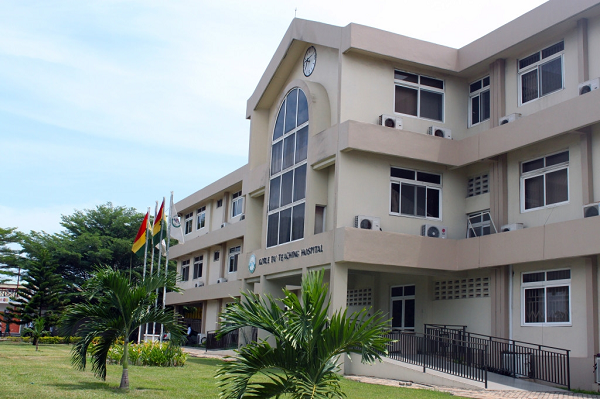
Korle Bu prepares patients for kidney transplant
The Korle Bu Teaching Hospital (KBTH) has begun processes to present patients at the Renal Dialysis Unit of the hospital for kidney transplant, the Chief Executive Officer (CEO), Dr Daniel Asare, has confirmed.
The processes, he said, included counselling of patients and their donors, series of tests of the patients and donors, aside from the usual dialysis the patients received weekly.
Background
Patients at the Renal Dialysis Unit of the KBTH will have the opportunity to undergo kidney transplant free of charge from September 2018.
First Sky Group, a construction firm which is sponsoring the initiative, will bring in specialists from Birmingham in the United Kingdom (UK) to perform kidney transplants for the patients.
The initiative serves as an exit plan by the group, which has instituted a Kidney Transplant Scheme to support patients with kidney diseases to undergo weekly renal dialysis at Korle Bu.
The Executive Chairman of the First Sky Group, Mr Eric Seddy Kutortse, made this known when a team from the group embarked on a familiarisation tour of the Renal Unit at Korle Bu in Accra to assess how the scheme had impacted on patients after its establishment.
Under the transplant initiative, while the group funds the transplant, the patients will have to get their donors, with the doctors determining the right donated kidney to use.
Update
After a few months of promising to fund the kidney transplant, the sponsors have made available the needed funds to convey surgeons from Birmingham to carry out the operations on four kidney patients.
The company, which adopted the Renal Dialysis Unit of the KBTH, has also released an undisclosed amount of money to the unit to cater for the usual dialysis of all the patients at the unit.
In an interview with the Daily Graphic, Dr Asare, who confirmed the payment of the funds, said that although the provision for the kidney transplant was to cater for the first four patients, the hospital was building its capacity to extend the number to 24.
“Before you can have a kidney transplant you need a donor, a compatible donor, thus somebody whose kidney can match with that of the patient. We need to also screen the person who is donating to make sure that the other kidney he or she will be left with is also okay, either than that you will also convert somebody who is healthy to somebody who is sick,” he said.
